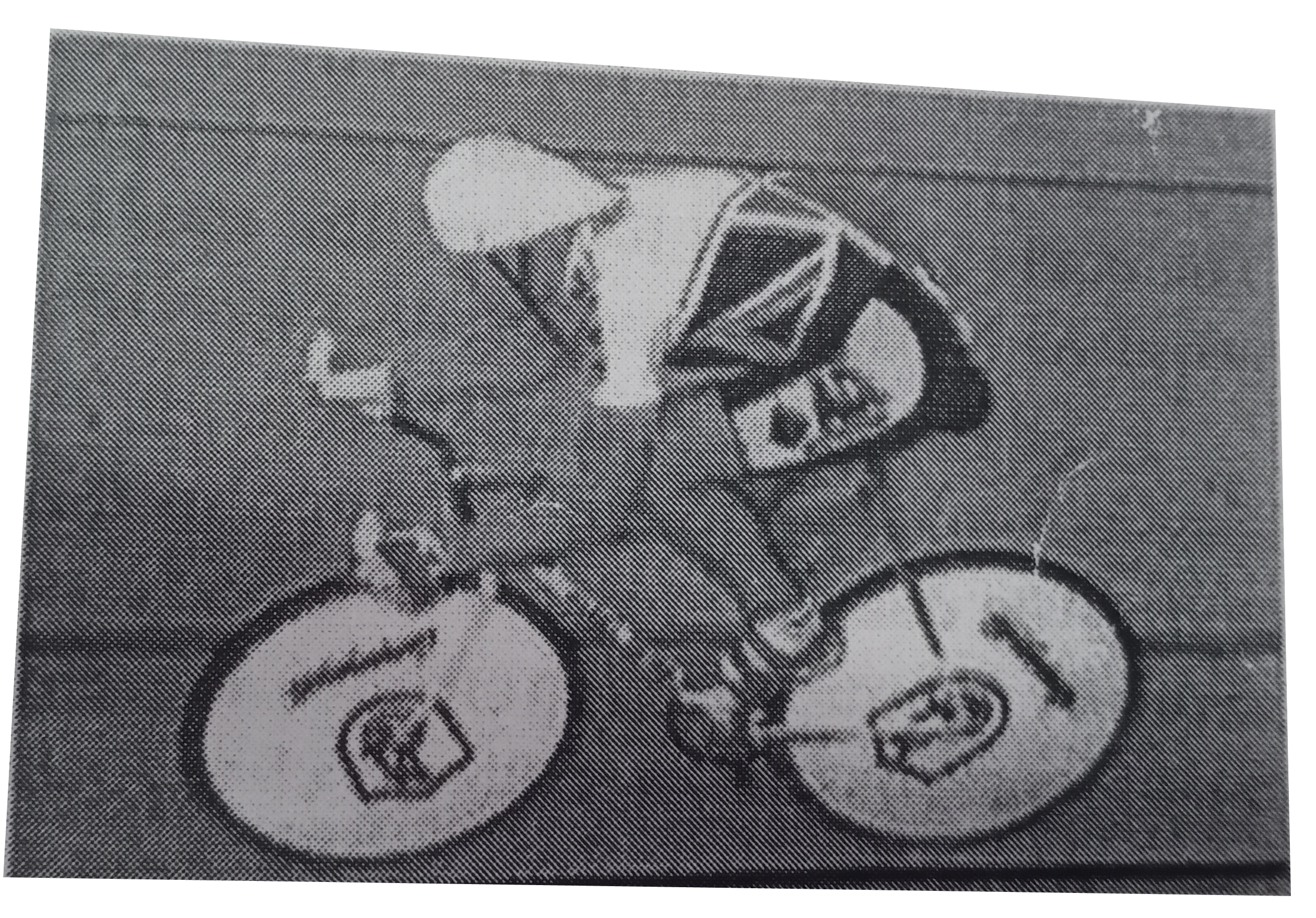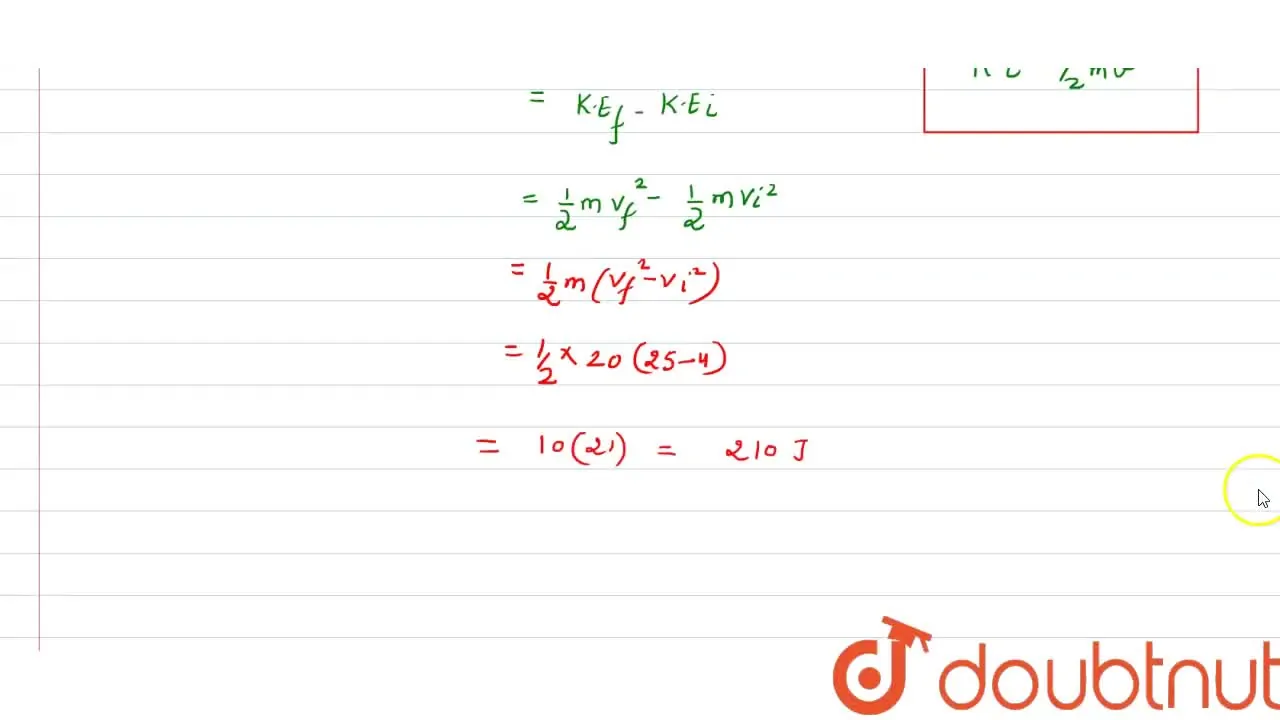How much work should be done on a bicycle of mass 20 kg to increase its speed from 2ms−1 to 5ms−1 ? (Ignore air resistance and friction).
We know that whenever work is done, an equal amount of energy is used up. So, the work done in this case will be equal to the change in kinetic energy of bicycle when its speed changes from 2ms−1 to 5ms−1.
(a) In the first case:
Mass of bicycle, m = 20 kg
And, Speed of bicycle, v=2ms−1
So, Kinetic energy, Ek=12mv2
=12×20×(2)2
=10×4
= 40 J
(b) In the second case :
Mass of bicycle, m = 20 kg
And, Speed of bicycle, v=5ms−1
So, Kinetic energy, Ek=12mv2
=12×20×(5)2
=10×25
= 250 J
Now, Work done = Change in kinetic energy
= 250 - 40
= 210 J
Thus, the work done is 210 joules.

Related Playlists
- BOOK - LAKHMIR SINGH & MANJIT KAURCHAPTER - WORK AND ENERGYEXERCISE - Exercise160videos
WORK AND ENERGY
- BOOK - LAKHMIR SINGH & MANJIT KAURCHAPTER - WORK AND ENERGYEXERCISE - Long Answer Type Questions2videos
WORK AND ENERGY
- BOOK - LAKHMIR SINGH & MANJIT KAURCHAPTER - SOUNDEXERCISE - Value Based Questions20videos
SOUND
Similar Questions
What force should be applied on a body of mass 500 kg to change its velocity from 4 ms1 to 6 ms−1 in one second ?
View SolutionQuestion stimulus:-
A constant force acting on a body of mass 5 kg changes its speed from 2ms−1 to 4ms−1 in 20 s, without changing its direction of motion. The magnitude of the force isView SolutionA constant force acting on a body of mass of 5 kg change its speed from 5ms−1 to 10ms−1 in 10s without changing the direction of motion. The force acting on the body is
View SolutionNumerical problems Calculate
K.E. of a car of mass 400 kg moving with ·a speed of 20 ms−1View SolutionFind the acceleration of the car, if it changes its velocity from 20ms−1 to 30ms−1 in 5 seconds.
View SolutionWhat force will change the velocity of a body of mass 1 kg from 20ms−1to 30ms−1 in two seconds?
View SolutionThe average resisting force that must act on 5kg mass to reduce its speed from 65 to 15ms−1 in 2s is
View SolutionA force applied on a particle of mass 2 kg changes its velocity from (ˆi+2ˆj)ms−1to(4ˆi+6ˆj)ms−1. The work done by the force in this process is :-
View SolutionHow much work must work be done by a force on 50 kg body in order to accelerate it in the direction of force from rest to 20ms−1 is 10 s?
View SolutionA body of mass 6 kg is acted on a by a force so that its velocity changes from 3ms−1 to 5ms−1, then change in momentum is
View Solution


